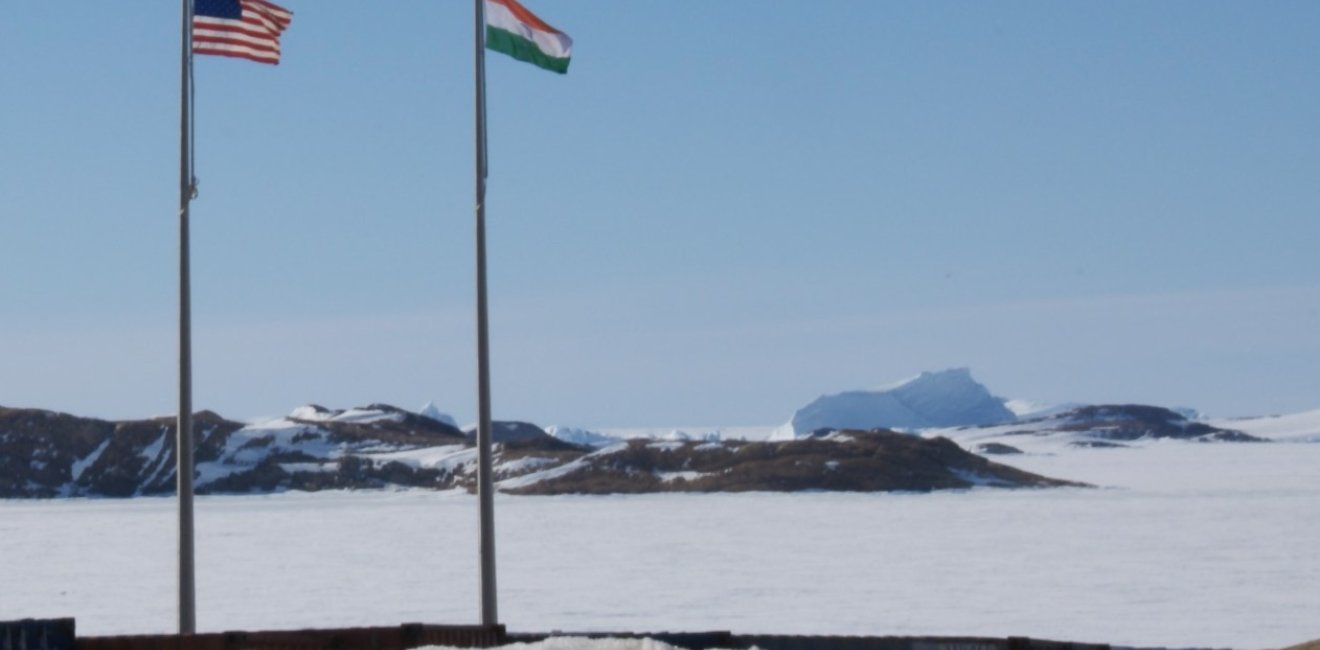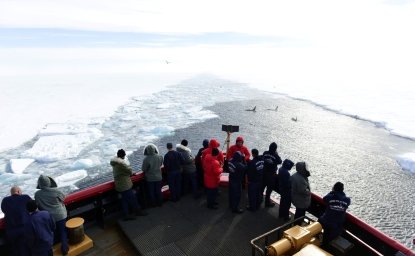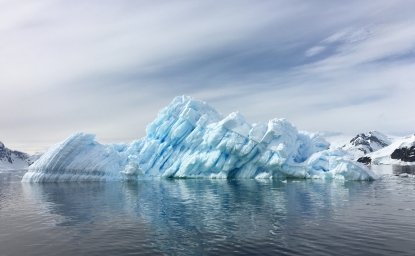
A blog of the Polar Institute
On May 20, the highpoint of the Antarctic diplomatic year will begin in the south Indian city of Kochi at the meeting of the Antarctic Treaty parties. Each year, countries from all over the world gather for the Antarctic Treaty Consultative Meeting to discuss and take decisions on key policies affecting governance of the continent. The Antarctic Treaty has provided for more than sixty years a framework for peaceful cooperation, in particular related to the pursuit of polar science. Indeed, the treaty and its related instruments have effectively demilitarized the continent, managed territorial claims, prohibited mining and other resource extraction, and established regulatory procedures for marine conservation and fisheries management.
Yet the annual ATCM is also a focal point for the geopolitical competition among key states active in Antarctica, reflecting both global tensions and regional interests. Even though the Treaty was agreed during the Cold War as a way to avoid the United States and the Soviet Union beginning an active phase of competition for influence in the region, including by rendering their own territorial claims, the meeting is still the venue for states advancing their foreign policy objectives related to Antarctica and the Southern Ocean.
This will be the third ATCM since the further invasion of Ukraine by the Russian Federation in 2022. The two prior ATCMs – held in Berlin and Helsinki – were significantly affected by that conflict. At the ATCM, both Ukraine and Russia are “consultative parties” meaning that each has a full role in decision-making, and as all decisions on matters of substance are taken by consensus, each has the ability to prevent adoption of any measure or decision that it doesn’t support. Both of those meetings began with statements by the United States and other countries supporting Ukraine and criticizing Russian aggression, followed by a strong response from Russia. China pushed back in Russia’s favor, contending that the ATCM was not the place to discuss such matters. At Berlin, the Ukraine issue led to an argument over the meeting’s final report, which had to be adopted by vote (report adoption is an exception to the normal consensus rule); trouble over the report was avoided however at Helsinki.
The Ukraine war has continued unabated, with little immediate hope for a resolution. As a result, it would not be surprising if the opening of the Kochi ATCM and resulting atmosphere at the meeting will be the same or similar as the past two years.
The ATCM was able to conduct its business despite the Ukraine conflict, which can’t be said for some other forums involving Russia in other contexts, a major example being the pause and then partial resumption of work in the Arctic Council. As some scholars have pointed out, this may be because treaty-based cooperation, such as under the Antarctic Treaty or the Central Arctic Ocean Fisheries Agreement, can be more resilient than other forms (the Arctic Council is a forum not an organization formed through a binding instrument).
Yet just because Russia is in the same room with other countries doesn’t mean that cooperation is easy or meaningful. Countries allied with Ukraine avoided the Russian delegates when not at the table during formal sessions, and there was little ability to work with Russia on issues on the agenda at the meeting. This is the sort of degraded interaction that we’ve seen elsewhere, e.g., at the United Nations, the International Maritime Organization and other places. And there have been some practical implications. Canada, an Antarctic Treaty party, has been seeking to become a consultative party – something that requires support of all the existing consultative parties. Russia has objected, and one can imagine that that objection will continue while the Ukraine situation remains unresolved. Belarus, a Russian ally, is also seeking consultative status, and its bid is unlikely to command general support. Neither candidacy seems likely to move forward during this period of tensions.
Geopolitical differences aren’t restricted at the ATCM to the Ukraine context. At the 2022 meeting in Berlin, the UK with support of the US and many others, sought designation of the emperor penguin as a Specially Protected Species under Annex II to the Protocol. Despite very strong science supporting this action, China refused to join consensus. The Host Country Communiqué took the unusual step of indicating that a formal decision on protected status had been “blocked by one party.” China continued to oppose this initiative at the ATCM in Helsinki the following year. This issue could arise again this year in Kochi, but there is no indication that there would be a different outcome.
The ATCM will have a full agenda of issues many of which will likely not pit Russia or China against others. For example, a major area of focus will no doubt be on how to respond to the post-pandemic rise in ship-borne tourism in Antarctica. Tourism has received considerable attention at ATCMs over the years, but there has been little success in agreeing on comprehensive policies Last year, the parties agreed to set up a process at Kochi to develop what they termed a “comprehensive and consistent framework” for the regulation of tourism and non-governmental activities, and set aside considerable time at this ATCM for discussions. A large group of countries support moving forward on this topic. However, the United States, which sends the most tourists to Antarctica and provides domestic regulation for the greatest number of tourist expeditions, has had limited enthusiasm for new, broad international regulations, especially any new treaty instrument that might require new domestic legislation.
Delegations in Kochi will also no doubt be interested in discussing climate change and recent studies with disturbing conclusions about record low sea ice minimums and the increasing contributions of Antarctic ice shelves to sea level rise. The ATCM can consider how best to spur science to examine these phenomena, including through the operation of national science programs and their research stations, although the vital diplomatic work to mitigate climate change occurs in other international fora.
The impact of bird flu in Antarctica, which may be the recent cause of thousands of dead penguins on the continent, should also receive attention. The delegates may also focus on how microplastics have been found in Antarctica and are thus reaching the most remote corners of the planet.
Finally, it is worth noting the importance of having India as this year’s host country. The Antarctic Treaty was established in 1959 by 12 nations, and the number of parties has grown to 56. Nevertheless, being active in Antarctica involves sending scientists to remote research stations and supporting complex logistics networks, which is quite expensive. Over time, developing countries have played an increasing role in Antarctica and its governance, and India is an example of a rising power that has steadily increased its Antarctic profile in recent years. It now operates two research stations there, and it will have the chance to showcase its achievements and ambition at the ATCM.
Author

Former Acting Deputy Assistant Secretary for Oceans and Fisheries and Director for Ocean and Polar Affairs, US Department of State

Polar Institute
Since its inception in 2017, the Polar Institute has become a premier forum for discussion and policy analysis of Arctic and Antarctic issues, and is known in Washington, DC and elsewhere as the Arctic Public Square. The Institute holistically studies the central policy issues facing these regions—with an emphasis on Arctic governance, climate change, economic development, scientific research, security, and Indigenous communities—and communicates trusted analysis to policymakers and other stakeholders. Read more

Explore More in Polar Points
Browse Polar Points
China, Pursuing Strategic Interests, Builds Presence in Antarctica



